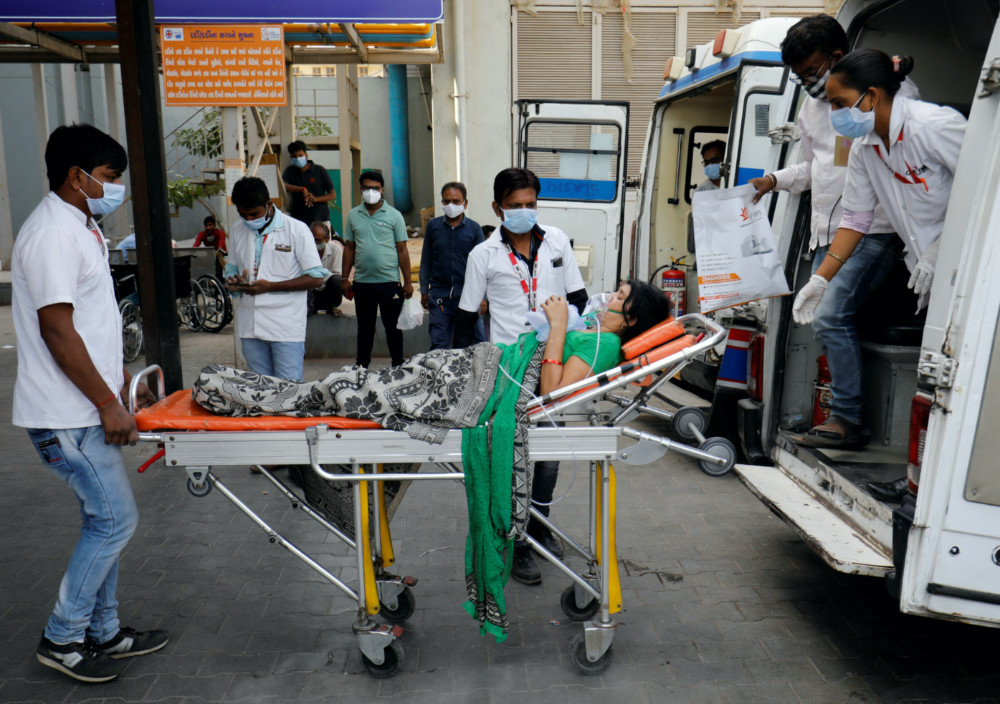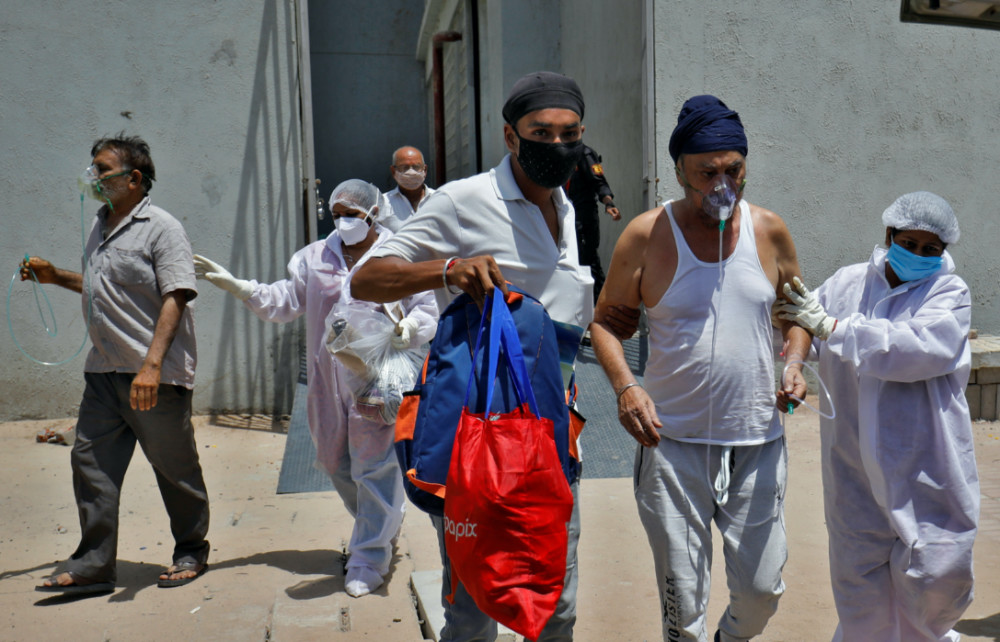Satara, India
Reuters
At least 24 COVID-19 patients in western India died on Wednesday when the oxygen supply to their ventilators ran out, amid a nationwide shortage of the gas and a surge in infections.
Maharashtra State Health Minister Rajesh Tope confirmed the deaths at a hospital in Nashik city and said the hospital’s oxygen supply ran out because a tanker refilling it suffered a leak. Oxygen was running scarce throughout the country.

A patient wearing an oxygen mask is wheeled inside a COVID-19 hospital for treatment, amidst the spread of the coronavirus disease (COVID-19) in Ahmedabad, India, on 21st April, 2021. PICTURE: Reuters/Amit Dave.
“The leakage was spotted at the tank supplying oxygen for these patients. The interrupted supply could be linked to the deaths of the patients in the hospital,” Tope said.
Hospitals in Delhi, the capital, and elsewhere have warned that their supplies of medical oxygen given to severely ill COVID-19 patients are running low.
Max Healthcare, the largest private sector healthcare provider in Delhi and its suburbs, said some of its hospitals had barely two hours’ supply of oxygen.
Television showed images of people with empty oxygen cylinders crowding refilling facilities in the most populous state of Uttar Pradesh, as they scrambled to save stricken relatives in hospital.
The situation was so severe that some people tried to loot an oxygen tanker, forcing authorities to beef up security, according to the health minister of the northern state of Haryana.
India now faces a coronavirus “storm” overwhelming its health system, Prime Minister Narendra Modi said in a national address on Tuesday, adding that authorities were working with states and private firms to deliver oxygen with speed.
Authorities in Maharashtra, which is already under partial lockdown, late on Wednesday ordered additional restrictions on the movement of people within the city and state until 1st May to curb the coronavirus’ spread.
The order said all offices, except those providing essential services, must operate with 15% staff. Travel by private vehicles is permitted only for medical emergencies, and only medical workers and government employees may ride the normally popular train system.
India, the world’s second-most populous nation reported 295,041 new coronavirus infections on Wednesday – the biggest daily rise reported in any country – stretching its hospitals to breaking point, officials said.

Patients wearing oxygen face masks are shifted to a hospital, amidst the spread of the coronavirus disease (COVID-19) in Ahmedabad, India, on 21st April. PICTURE: Reuters/Amit Dave
Only the United States had a slightly higher one-day rise of 297,430 cases in January, though its tally has since fallen sharply. India’s 2,023 deaths were also its highest in the pandemic.
Adding to the sense of alarm, the Serum Institute of India, which manufactures the AstraZeneca COVID-19 vaccine, said it will not be able to raise its monthly output to 100 million doses from the current 60 million to 70 million until July, compared to its previous forecast of late May.
The delay could slow India’s immunisation drive, which the government has opened for all adults from next month to try to stem the deadly second wave.
Guard lowered
Health experts said India had let its guard down when the virus seemed to be under control during the winter, allowing big gatherings such as weddings and festivals.
Modi is himself facing criticism for addressing packed political rallies for local elections and allowing a religious festival to go ahead where millions gathered.
India has so far administered nearly 130 million doses of vaccine, the most in the world after the United States and China but still small relative to its population of 1.35 billion people.
Vaccine doses have run short in many states though inoculations are currently restricted to frontline workers and those aged above 45.
Germany on Wednesday warned its citizens in India that the health risk of staying in the country had “considerably” increased due to shortage of beds in hospitals.





